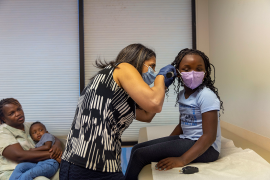Correspondent: Sonĵ Hall
For their 50th birthday, all Australians receive a free test kit for bowel cancer from the government, but only four in 10 complete and mail back the test. A new AUD 10 million (USD 6.96 million) advertising blitz is designed to increase this rate to six in 10. If the advertising boost works as predicted, the estimated number of lives saved from the screening program between 2015 and 2040 will rise from 59,000 to 83,000.











